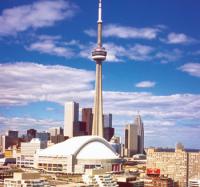Toronto has released a framework for public involvement and review that includes 27 steps for people to take to improve air quality, an inventory of sources of greenhouse gases and pollutants, and ideas on the strategies, policies, programs and projects needed to meet the city’s emission-reduction targets.
The framework will see Toronto commit to a six per cent cut in greenhouse gas emissions from the Toronto urban area by 2012 (based on 1990 levels), a 30 per cent cut by 2020, and an 80 per cent reduction by 2050. The targets mirror recently announced European Union goals.
In keeping with Mayor David Miller’s commitment, the City will reduce levels of smog-causing pollutants by 20 per cent by 2012.
Subscribe to our newsletter
Stay up to date with DeSmog news and alerts







